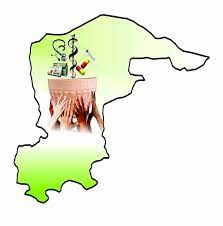NEWS
Mokwa Flood: Support Groups, NGO Urge FG, NSG to Redeem Pledges

From Dan Amasingha, Minna
Barely three weeks after the devastating flood disaster that claimed over 165 lives and destroyed properties worth billions of naira, a non-governmental organization appealed to both the Federal and Niger State governments to redeem their pledges to curtail future disasters.
In a strongly worded statement issued by the NGO and signed by the secretary, Suleiman Ndaguye, commended President Bola Tinubu and Governor Mohammed Umar Bago for showing empathy to the flood disaster victims. The statement quoted the Chairman of the Non-Governmental organization, Alhaji Ahmed Nasir, a retired Assistant controller General of Customs which consists of prominent indigenes of the flood ravaged town to initiate actions to put in place definite measures at finding a permanent solution to the perennial flood.He explained that the flood disaster highlighted the urgency to address key concerns of climate change and effective assessment of the remote causes.”Beyond the immediate measures, the Federal Government and Niger State Government should institute proactive measures to address flooding in Mokwa town, and Nigeria in general”The group which applauded President Bola Tinubu for his N2 billion Naira donation to the resettlement fund and 20 trucks of grains for the victims as well as installation of power transformer for Mokwa town, and Governor Bago for visiting and announcing the release of one Billion Naira and 7 Billion Naira reconstruction of critical road infrastructure between Mokwa- Rabba road.”We however, appeal to both the Federal Government and Niger State Government to expedite action in fulfilling the promises”A multi-faceted approach involving the state actors and non-governmental organizations involving highly placed Mokwa indegines is important to diminish flood disaster in Mokwa.”We therefore appealed to the Niger State Governor to include NGO groups in the Government resettlement committee as they know the terrain”.NEWS
NEDC Flags off Distribution of Building Materials to Yobe Flood, Conflict Victims

From Muhammad Gambo, Damaturu
North East Development Commission in Yobe State, has flagged off the distribution of Building Materials to people of 13 Local Government Areas affected by Flood and Conflicts.The Distribution exercise which took place at the Store of the Commission in Damaturu, also featured the handing over of Search and Rescue Equipment to the State Emergency Management Agency (SEMA).
Prof. Ali Ibrahim, the State Coordinator of Yobe NEDC, while flagging off the distribution of the materials said, the exercise is part of its effort to minimize the effects of anticipated floods across Yobe State.The Search and Rescue Equipment donated to the State Emergency Management Agency, he said are aimed at minimizing the risk associated with rescue during the anticipated floods noting that SEMA officials face challenges in the process of rescuing victims of flood.Commenting on the support of the search and rescue equipment provided to Yobe SEMA by the NEDC, the Commissioner Yobe State Ministry of Humanitarian Affairs and Disaster Management Dr. Mairo Ahmed Amshi and the Executive Secretary of the Agency, Dr. Muhammad Goje said the support came at the right time.With the symbolic flagged off, the Building Materials are handed over to the Chairmen of the benefitting Local Government Areas for onward distribution to the rightful beneficiaries.NEWS
Reps Identify Huge Renewable Energy Gaps in Nigeria

By Ubong Ukpong, Abuja
The House of Representatives on Thursday, said that there was a fifty percent unmet need in the Renewable Energy skilled labour sector.Chairman, House committee on Renewable Energy, Rep. Afam Ogene, said this during the Africa Policy Dialogue (APD) workshop with the theme: Green jobs and low carbon transition,” in Abuja.
Ogene said that the unmet needs had impeded employment of quality technicians and employees in the sector. ”Today, nearly 50 per cent of skilled labour needs in Nigeria’s renewable sector remain unmet.”Employers across the country consistently report difficulty hiring qualified technicians, engineers, and system operators,” he said.He affirmed the gap in local equipment manufacturing, saying that most equipment used in renewable energy power generation was imported.According to him, this potentially causes loss of green job opportunities.Ogene however said that this development was not as a result of shortage of the raw resources to locally manufacture, but because of the skill gaps and inadequate policies to ensure knowledge transfer.He explained that the gap was not just a workforce problem, but a policy problem.The Committee Chairman said that China, through its green job programme backed by Government policies and funding, had recorded an estimated total of over 7 million green jobs.He called on Nigeria’s academic institutions to align with the energy transition’s demands.Ogene, who reiterated the commitment of the legislature to improved Renewable Energy delivery, said that lawmakers recognized that crafting effective green jobs legislation for women and youth was imperative.He explained that such required meticulous work to ensure alignment with existing laws and potency in achieving their goals.According to him, with my team of experienced colleagues, expert legal advisors, and skilled legislative drafters, we’re confident in delivering a comprehensive and impactful law the nation will be proud of.Speaker, House of Representatives, Rep. Abbas Tajudeen said that the dialogue was in accordance with the role of the 10th Assembly which aligned directly with the broader oversight and legislative responsibility.Abbas, represented by the Deputy Minority Whip, Rep. George Ozodinobi, affirmed the 10th Assembly’s commitment to investigate policy gaps and propose solutions that were meaningful, realistic and impactful in addressing the challenge.”Let me sincerely thank the Chairman and Members of the Committee on Renewable Energy for their diligence, foresight, and relentless effort in championing this important cause.”As a responsible People’s House, we are fully aware of the strategic importance of green energy, not just because of its environmental significance but also due to its immense economic potential.”Abbas said that the loud and urgent call for a just energy transition in Nigeria was a reflection of a dual reality.According to him, our vulnerability to the impacts of climate change and our untapped renewable energy potential.The Speaker restated the determination of the parliament to collaborate with relevant stakeholders in creating jobs to improve energy access, from preserving our ecosystems to reducing dependency on fossil fuels.He expressed the imperatives of the legislative agenda as placing a strong emphasis on energy transition as a key pillar in tackling unemployment and environmental degradation.He said that Nigeria was at a critical juncture where bold and deliberate policy choices could determine expected leap ahead into a sustainable future or remain stalled by outdated systems.He called for urgent action to tap into renewable energy as a way forward in tackling youth unemployment and under-employment.Also speaking, a representative of INCLUDE Knowledge platform, Ms Victoria Manya expressed the platform ‘s belief in not just transition but increasing renewable energy skills in Africa.Manya warned that the low-carbon transition risked becoming the handmaiden of fossil fuel interests—delivering decarbonization targets on paper.”What we must do is reclaim the transition—not only as a climate imperative—but as a generational opportunity to rewrite our social contract.”In Nigeria, the data is clear: too many young people are unemployed or underemployed, and too many women are shut out of emerging green sectors.”She explained that “a just transition must not only ask how we reduce emissions—but who gets the new jobs, who trains the workforce, and who shapes the policies.”Manya said that Nigeria stood at the same global threshold with bigger renewable energy nations, with a unique opportunity to lead Africa in embedding labour justice into climate action.
NEWS
Oil Industry Operators Reject Proposed Oil Decommissioning Commission

By Ubong Ukpong, Abuja
Stakeholders in Nigeria’s oil and gas industry have objected to a proposed establishment of a new regulatory agency for the decommissioning and abandonment of oil production facilities, insisting that existing structures were already adequately equipped for the task.
During an interactive session with lawmakers and key industry players in Abuja, representatives of the Nigerian Upstream Petroleum Regulatory Commission (NUPRC) and other stakeholders argued that the creation of a new commission would amount to duplication of responsibilities and unnecessary bureaucracy. The meeting, chaired by Hon. Alhassan Ado Doguwa, brought together key stakeholders including officials from the Ministry of Petroleum Resources (MPR), Ministry of Environment (FME), Nigerian Upstream Petroleum Regulatory Commission (NUPRC), National Oil Spill Detection and Response Agency (NOSDRA) and National Environmental Standards and Regulations Enforcement Agency (NESREA).In his opening remarks, Doguwa underscored the significance of the proposed commission, describing the NC-DOGI Bill as a “landmark legislative proposal aimed at establishing a dedicated commission to coordinate all decommissioning efforts in Nigeria’s oil and gas sector.”“This Bill is not just another legislative initiative—it is a leadership Bill,” he said. “It is designed to ensure Nigeria meets globally accepted standards of decommissioning, while protecting host communities and the environment from the harmful effects of improper facility abandonment.”Despite the Chairman’s optimistic framing, the proposal faced strong opposition from industry regulators and stakeholders, who insisted that Nigeria already has an effective framework under the Petroleum Industry Act (PIA) and other regulatory instruments to handle decommissioning and abandonment.Despite the Chairman’s optimistic framing, the proposal faced strong opposition from industry regulators and stakeholders, who insisted that Nigeria already has an effective framework under the Petroleum Industry Act (PIA) and other regulatory instruments to handle decommissioning and abandonment.The Director of Production and Development of the Nigerian Upstream Petroleum Regulatory Commission (NUPRC), Mark Emmanuel argued that the obligations for decommissioning are embedded in current licensing frameworks and are strictly enforced under the supervision of the commission.“The PIA under Sections 232 and 3 already makes elaborate arrangements for decommissioning and abandonment,” he said. “It is the legal obligation of the licensee or lessee to fund, plan, and carry out decommissioning at the end of an oil field’s life cycle. The funds set aside for this purpose are not government revenue but are controlled by the operators under the NUPRC’s supervision.”He further warned that setting up a new agency would be premature and wasteful, noting that most oil fields in Nigeria are still productive and far from their decommissioning phase.The Director, environmental assessment department, Ministry of Environment Rofikat Odetoro, echoed the sentiments, warning against creating redundant structures. “This is already embedded in the Environmental Impact Assessments (EIA) and current regulations. Instead of creating a new agency, let’s empower NOSDRA and the relevant existing institutions,” she said.As discussions unfolded, emphasis was placed on the need to differentiate between what exists on paper and the realities on the ground, particularly in the Niger Delta, where host communities have long suffered the consequences of environmental degradation from abandoned oil infrastructure.Doguwa concluded the meeting by reaffirming the committee’s commitment to inclusive and informed decision-making.



















